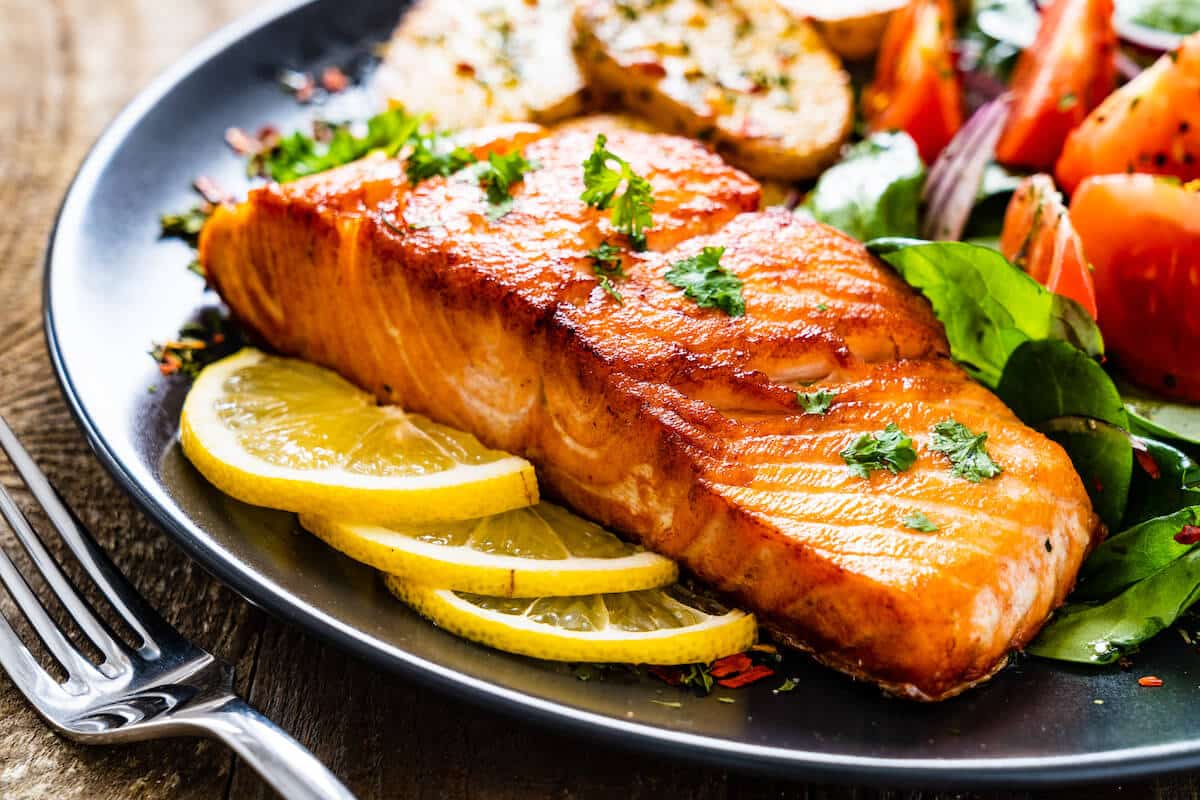
21 Feb How Long Does It Take Protein to Digest?
Everyone needs protein, but it’s an especially critical nutrient for anyone looking to build muscle. If you’re an athlete or bodybuilder who structures your day around meals and workouts, at some point you’ve probably wondered: How long does it take protein to digest?
Let’s clarify exactly why you need protein and how your body uses it, along with the difference between digestion and absorption. We’ll also discover the digestion rates of some different types of protein and why that matters — or does it?
Why Do You Need Protein?
Your body needs three macronutrients to operate at its best: protein, carbohydrates, and healthy fats.
Protein plays a very important role as it’s involved in many different functions throughout the body. It’s a critical structural component of your skeletal system, tissues, and organs, and it also helps to build muscle mass and strength in combination with resistance exercise. Its muscle-building and maintenance properties are why so many in the bodybuilding and athletic community swear by it.
It’s also popular as a supplement that supports general health and wellness as well as weight loss. If you’re an endurance athlete, protein provides an energy boost when you need it, especially if you’re restricting carbs.
How Much Protein Do You Need?
Protein is made up of building blocks called amino acids. Your body can make some amino acids, but there are several that can only come from the food you eat. These are known as essential amino acids (EAAs).
The amount of protein you need to consume every day depends on several factors, including your general health, age, goals, and activity levels.
A person who is only moderately active needs an average of 0.8 grams of protein per kilogram of body weight every day. Anyone who’s involved in a more intensive exercise regimen or focused on building lean muscle mass needs at least 2 grams of protein per kilogram each day.
Although most of your protein sources should be whole foods, like beef, chicken, fish, eggs, legumes, and nuts, it can be difficult to eat that much — which is why many athletes rely on protein supplements to increase their protein intake. Those supplements are often taken around workouts, which raises the question: how long does it take protein to digest?
In answering that question, it’s important to understand that there are in fact two processes at work: protein digestion and protein absorption. For our purposes here, we’re talking about the two processes together. We’ll explore the differences a little later.
How Long Does It Take Protein to Digest by Protein Type?

The short answer is that the rate of digestion (and absorption) depends on the type of protein. Proteins are divided into three categories when it comes to digestion rate: fast digesting, medium digesting, and slow digesting.
Fast Digesting Proteins
Fast digesting proteins digest within one to two hours. Pure whey protein, in particular, works extremely quickly, digesting at a rate of about 10 grams per hour — and giving you a fast boost of muscle-building amino acids for about 90 minutes. Note that whey protein isolate is extremely low in lactose, containing less than 1% — much less than whey protein concentrate — so it’s a good choice for anyone sensitive to lactose.
Medium Digesting Proteins
Medium digesting proteins, like pea protein, soy protein, and egg whites, digest within three to three and a half hours.
Slow Digesting Proteins
Slow digesting proteins, like meat, fish, nuts, and casein protein powder, take more than four hours. Many athletes take casein before bed so their bodies can continue to repair and build muscle while they sleep.
Pro Tip: In case you’re wondering whether you should start micro-planning the timing of your meals, recent research shows that when you eat your protein may not make that much of a difference — in which case it doesn’t really matter how long it takes protein to digest. More important is to make sure you get enough high-quality protein spread over the day.
What’s the Difference Between Protein Digestion and Protein Absorption?

Many people conflate these two activities and so far, for the sake of simplicity, we’ve been doing that too. Now let’s clarify the role each plays here and how they contribute to protein synthesis.
Protein Digestion
When you consume dietary protein, hydrochloric acid in your stomach, along with the movement of the stomach itself, starts to break down that protein into amino acid chains.
As the digestion process continues, the amino acid chains move into the small intestine. The pancreas secretes digestive enzymes into the small intestine, which activates other enzymes called proteases. These break down the peptide bonds between the amino acid chains, releasing smaller chains as well as individual amino acids.
Protein Absorption
From there, the amino acids move through the walls of the small intestine into the bloodstream, raising the amino acid levels in your blood.
It’s worth noting that just because a food or supplement is digested, doesn’t necessarily mean it can easily be absorbed and used by your body. Some foods and supplements will move almost straight through your digestive system and be excreted by your body, without being absorbed or contributing much in the way of nutrients.
Absorption depends on a variety of factors. For example, certain foods, like legumes, contain “anti-nutrients” which bind with other nutrients, making them more difficult to absorb. The chemical form of the nutrient also matters. For example, non-heme iron, which is found in plant-based protein, is less effectively absorbed then the heme iron found in animal-based protein. Your overall health and the health of your digestive system plays a big role too.
Muscle Protein Synthesis
The amino acids that do enter the bloodstream are carried to wherever they’re needed in the body and then recombined to form new amino acids. These amino acids become the building blocks for new muscle tissue, organ repair, or whatever other purpose they’re serving.
The most important amino acids for muscle growth are leucine, isoleucine, and valine. These are known as branched-chain amino acids (BCAAs). Leucine in particular is the trigger for muscle protein synthesis.
How to Choose the Best Protein Powder
If your goal is general health and wellness, muscle growth, or weight loss, you’re probably looking for a supplement to boost your protein consumption — in which case, you want to make sure you’re getting your money’s worth from that protein supplement.
Ingredient Optimized high-quality protein powders have been treated with Plasma Technology, which enhances the protein structure, making it more easily digested and absorbed. It’s been proven to be far more bioavailable than non-optimized protein supplements. As such, your body can use almost all that protein you consume, promoting increased strength, muscle mass, and recovery — and all with less discomfort for sensitive stomachs.
You’ll find Ingredient Optimized protein in these partner products:
Look for ioWhey in:
Look for ioPea in:
Because they’re neutral tasting and dissolve easily, you can add these protein supplements to protein shakes, juices, cereal, soups, or stews to increase your daily protein intake. Also, if you consume other ingredients with the protein powder — say, avocado or oats in your smoothie — you’ll slow down the digestion rate because those other ingredients take longer to break down.
Note: If you have any medical conditions, be sure to check with a dietitian or sports nutrition professional before adding extra protein to your diet.
How Long Does It Take Protein to Digest?
Many athletes focus on protein in their meals to help build the lean muscle mass they’re looking for. And with a structured training regimen, they need to plan their meals around their workouts. This raises the question of how long does it take protein to digest?
It turns out that the answer depends on the type of protein. Some proteins, like whey protein, digest very quickly, releasing amino acids into your bloodstream fast and for a short time only. Others, like casein, take longer and offer a slow-release, muscle-building effect.
Whichever type you choose, make sure you invest in a high-quality protein supplement that gives you the results you’re looking for. Most importantly though, make sure you’re getting enough protein during your day to support your goals. That’s the bottom line.


